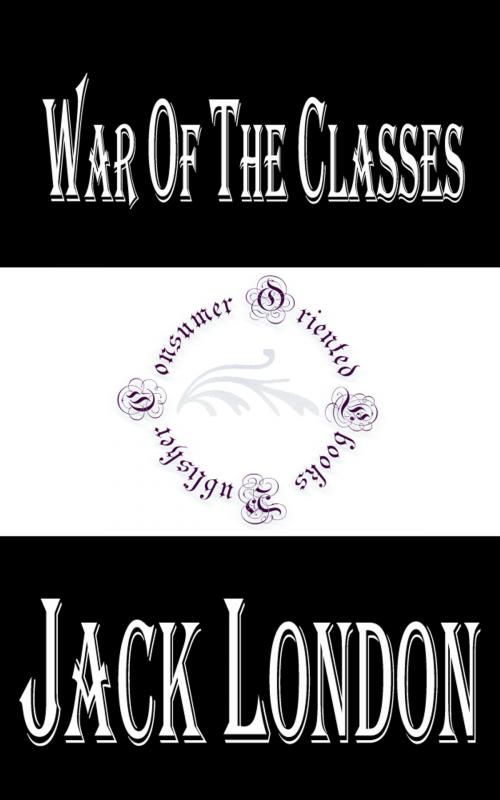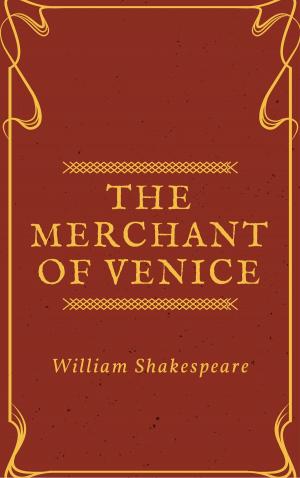War of the Classes
Nonfiction, Social & Cultural Studies, Political Science, Government, Communism & Socialism, Social Science| Author: | Jack London | ISBN: | 1230000244753 |
| Publisher: | Consumer Oriented Ebooks Publisher | Publication: | June 4, 2014 |
| Imprint: | Language: | English |
| Author: | Jack London |
| ISBN: | 1230000244753 |
| Publisher: | Consumer Oriented Ebooks Publisher |
| Publication: | June 4, 2014 |
| Imprint: | |
| Language: | English |
War of the Classes is a collection of political writings by Jack London first published in 1905. London was a prominent socialist, and here he writes primarily about economic issues related to the struggle between labor and capital. At the time this book was compiled, socialism was gaining strength in America and abroad, massive strikes were causing frequent clashes between labor unions and the National Guard, and Socialist candidate Eugene V. Debs had just garnered over 400,000 votes in the Presidential election. London uses the current events of his day to educate the reader in basic Marxist principles. What results is both an instructive text on socialist theory and a snapshot of the state of labor issues in the early 20th century.
Though London was noted for his zealous radicalism, here he mostly avoids fiery rhetoric and states his case clearly and rationally. He doesn't get distracted with a lot of anecdotes, metaphors, or poetic rhetoric, but rather stays focused on the facts, at least the facts as seen through his admittedly biased red-colored glasses. Through his skillfully penned prose, London renders the complex subject matter intelligible and the text a pleasure to read.
The meat of the book consists of five long essays that were originally written as speeches. In "The Class Struggle", London outlines the basic conflict between labor and capital, and depicts the two sides as opposing armies preparing for all-out war. In "The Tramp" London discusses the "surplus labor army" and its necessity within a capitalist society. "The Scab" details the myriad ways by which individuals and parties in our capitalist society are forced to "scab" each other, that is, to provide more labor for less payoff. In "The Question of the Maximum" London addresses the problem of surplus capital and asks the question, "How much economic growth is too much?" In "Wanted: A New Theory of Development", he makes the case that the rise of the common man is actually antithetical to the evolutionary law of survival of the fittest. Once the socialist revolution is accomplished, London asks, what will be the new law of development that insures the continued evolution of the species? Also included are three shorter essays, including the autobiographical "How I Became a Socialist", but due to their brevity and shallower depth of discourse they're less compelling than the five longer pieces.
War of the Classes is a collection of political writings by Jack London first published in 1905. London was a prominent socialist, and here he writes primarily about economic issues related to the struggle between labor and capital. At the time this book was compiled, socialism was gaining strength in America and abroad, massive strikes were causing frequent clashes between labor unions and the National Guard, and Socialist candidate Eugene V. Debs had just garnered over 400,000 votes in the Presidential election. London uses the current events of his day to educate the reader in basic Marxist principles. What results is both an instructive text on socialist theory and a snapshot of the state of labor issues in the early 20th century.
Though London was noted for his zealous radicalism, here he mostly avoids fiery rhetoric and states his case clearly and rationally. He doesn't get distracted with a lot of anecdotes, metaphors, or poetic rhetoric, but rather stays focused on the facts, at least the facts as seen through his admittedly biased red-colored glasses. Through his skillfully penned prose, London renders the complex subject matter intelligible and the text a pleasure to read.
The meat of the book consists of five long essays that were originally written as speeches. In "The Class Struggle", London outlines the basic conflict between labor and capital, and depicts the two sides as opposing armies preparing for all-out war. In "The Tramp" London discusses the "surplus labor army" and its necessity within a capitalist society. "The Scab" details the myriad ways by which individuals and parties in our capitalist society are forced to "scab" each other, that is, to provide more labor for less payoff. In "The Question of the Maximum" London addresses the problem of surplus capital and asks the question, "How much economic growth is too much?" In "Wanted: A New Theory of Development", he makes the case that the rise of the common man is actually antithetical to the evolutionary law of survival of the fittest. Once the socialist revolution is accomplished, London asks, what will be the new law of development that insures the continued evolution of the species? Also included are three shorter essays, including the autobiographical "How I Became a Socialist", but due to their brevity and shallower depth of discourse they're less compelling than the five longer pieces.















